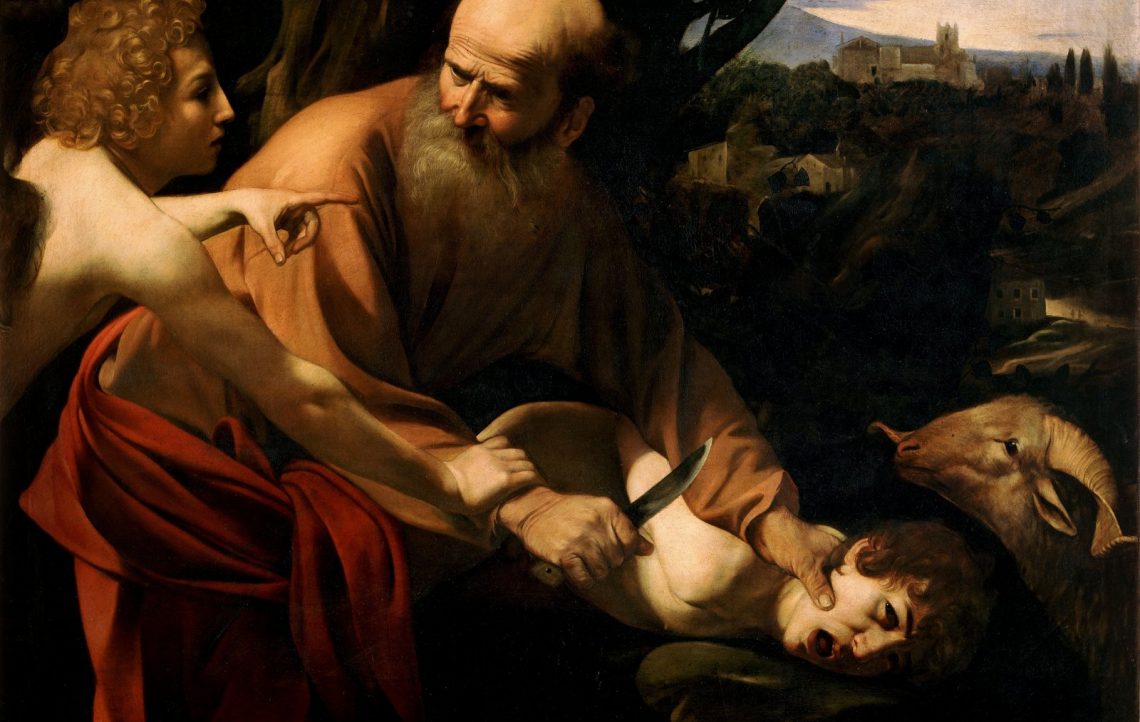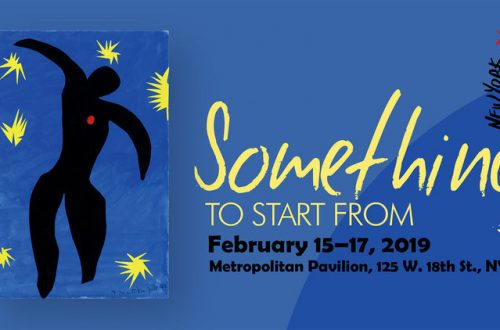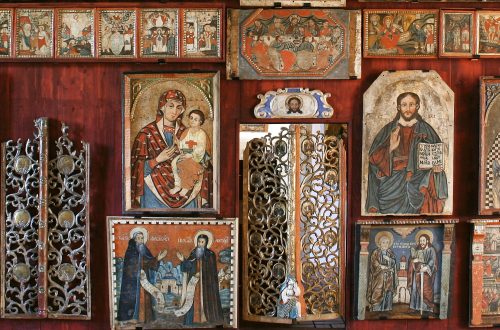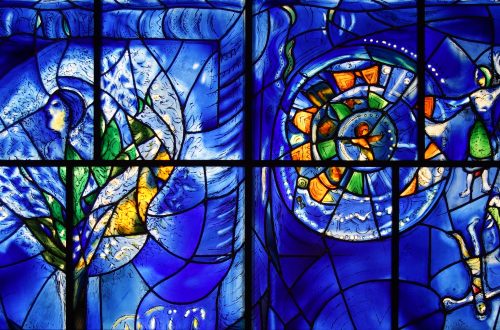by Matt Axvig
Of all faces those of our familiares are the ones both the most difficult to play fantastic tricks with, and most difficult really to see with fresh attention, perceiving their likeness and unlikeness: that they are faces and yet unique faces.
J.R.R. Tolkien, “On Fairy Stories”
One does not want to work and yet wants to understand the story. One speaks in Abraham’s honor, but how? By presenting the whole story in quite ordinary terms: ‘The great thing was that he loved God so much that he was willing to sacrifice the best to him.’
Søren Kierkegaard, Fear and Trembling
Having grown up in the church, I need a good shot in the arm occasionally to wake me up, lest I sleep through the Sermon on the Mount, God forbid! Since reading Fear and Trembling does just that for me, I wonder whether Kierkegaard needed the same himself. After all, he was churched up and down. It seems he relied upon his considerable poetic powers to fight against the contempt familiarity breeds. He did this most famously in his direct attack upon Christendom at the end of his life. But perhaps this explains as well why he wrote earlier pseudonymous works. Perhaps he invents the character “Johannes de silentio” in Fear and Trembling—almost as if in a fairy tale—in order to have him transform the Christianity Kierkegaard knows by rote into a strange, new gift.
The problem Johannes de silentio has with the “Sunday School Abraham” quoted above is that telling the story this way does not even begin to do justice to Abraham’s faith. “He was willing to sacrifice the best”—but that is much too vague, for the rich young man too had a prized possession, viz. his riches. When Christ challenged him to sell all he had, give the money to the poor, and follow along, he was in a sense at the same juncture of being willing or not “to sacrifice the best.” But not so fast. These two cases cannot be so easily lumped together. For the young man’s relation to his riches is less complicated than is Abraham’s relation to his son. His riches are just a temptation that would keep him from something better. What is unique to Abraham is his anxiety over his ethical obligation, since in his case being “willing to sacrifice the best” means murder, ethically understood. Yes, murder. The rich young man would have to give away his money to save himself; Abraham would have to murder his son to obey God.
What is left out of Abraham’s story is the anxiety, for to money I have no ethical obligation, but to the son the father has the highest and most sacred duty. Yet anxiety is a dangerous subject for the delicate natured; therefore one forgets it, in spite of the fact that one wants to talk about Abraham.
Given the inadequacy of “the moral of the story” to do justice to the actual story itself, the reader of Fear and Trembling is faced with an either / or. (Incidentally, Either / Or is the title of the book that launched Kierkegaard’s career.) Either I the reader settle for the moral of the story, gloss over the thorny details, and lean back and stretch out my legs; or I lean in, try to escape the platitude with its tired object lesson, and read the story, carefully attending to Abraham himself. It will take considerable work and maybe even a sleepless night, but it promises to be worth it if I can indeed recover the reality of the faith underneath the moral gloss. In the story of Abraham in particular, it would mean encountering a singular, enchanting wonder that could very well change my life. After all, this is the story that changed the world. It is the spring at the source of Judeo-Christian religion.
How now to recover it? The first way Kierkegaard opens up the fearsome reality of Abraham is by means of the counterfactual. He opens with a section called “Tuning Up”, consisting of imaginative retellings of the story. (Kierkegaard considered Fear and Trembling the most literary of his works, and it is indeed artful.) The retellings have alternative endings in which Abraham is more relatable than is the incomprehensible, unapproachable father of faith in the actual story. There are four of these “tune ups,” each followed by a terse analogy drawn between a second birth to faith and a child being weaned. Collectively, they attune the reader to the fraught reality of Abraham’s situation. In the first, Abraham realizes that in order to save Isaac’s faith in God, he must lie to his son that it is not God’s command, but his own monstrous desire. In the second, Abraham obeys out of resignation, not faith, thereby losing both God and Isaac in his heart of hearts. The third presents an Abraham bereft of faith in the face of murder and plagued by guilt. Finally, in the fourth “Abraham,” Isaac sees his father draw the knife in despair, which then infects Isaac too—like a communicative disease in the realm of spirit.
Some of my friends have wondered what I make of Kierkegaard’s ostensible apologetic for murder. What should we do, for instance, with the following statement? “If faith cannot make it a holy act to be willing to murder one’s son, then let the same judgment be passed upon Abraham as upon everybody else.”
In response I would turn to the third retelling, the Abraham plagued by guilt in the face of murder. Though it is not the “real” story, the fiction highlights what is true about the real Abraham. Namely, that he is sufficiently developed enough ethically not to be a radical who would sacrifice anything as a matter of course. The real Abraham (like the guilt-ridden one) must also have stumbled upon God’s request for the life of his son, and it is against this backdrop that his faith emerges:
It was an early morning, Abraham rose early, he kissed Sarah, the young mother, and Sarah kissed Isaac, her delight, her joy at all times. And Abraham rode pensively along the way; he thought of Hagar and the son whom he turned out into the desert. He climbed Mount Moriah, he drew the knife.
It was a quiet evening when Abraham rode out alone, and he rode to Mount Moriah. He threw himself upon his face, he begged God to forgive his sin, that he had been willing to sacrifice Isaac, that the father had forgotten his duty toward the son. More than once he rode his lonely trail but found no peace of mind. He could not comprehend that it was a sin to have been willing to sacrifice to God the best he owned, that for which he himself would gladly have laid down his life many times. And if it were a sin, if he had not loved Isaac in this way, then he could not understand how it could be forgiven, for what sin was more grievous?
The real Abraham, the hero of faith, loves Isaac, the child of the promise, in God. He expects to have grandchildren by him, and he holds onto this hope even as he obediently draws the knife. He continues to believe in this reality however absurd it appears. But the Abraham above is less extraordinary. He loves Isaac over against God, the terrible God who has interposed himself between father and son. Externally, everything happens the same as it does in the Genesis account, but inwardly how changed! The guilt-ridden, fictional Abraham returns to the site, anxious over the cleft God opens between him and every father worth the name. He doubts: did or did he not love Isaac more than himself, since he was willing to sacrifice him? And if, on the contrary, he was not willing to sacrifice him his very best, how can he claim to love God more than himself? Torn between the two, that Abraham regrets now the one, now the other.
To better appreciate this no-man’s-land of the guilt-plagued Abraham, we can follow Kierkegaard down a second route of escape from a clichèd, moralistic reading: the thought experiment of imagining an unchurched listener who naively takes it into his head to obey the sermon. What the speaker meant as an evasion—“Never mind Abraham, just be willing to offer God your best, whatever that may be”—the listener took all too seriously—“Hmm, my best is, as it was with Abraham, my own beloved son.” Moreover, in his earnestness he wanted to actually do something. It was not enough just to tell himself that he was willing to do it. And so… but comically the pastor intervenes and averts the tragedy he himself set in motion, and proves once again the old saying that things do not happen in the world as the parson preaches.
So then, Abraham stands alone. He is silent. He has to be. How could he communicate his word from God? Who would understand it? Still, the real Abraham journeys through this wilderness to Mount Moriah and back again, having kept the faith of God’s promise in spite of the absurdity, and having received Isaac back again, his delight, and his joy at all times. And were we to journey with him, even as it were, at a distance, we might also recover something we had lost.

Matt Axvig is a teacher from Minneapolis, MN and father of two boys and two girls. He enjoys driving (sometimes aimlessly) and listening to music. He loves playing tennis and wakes up in the middle of the night to watch the Australian Open every January. He dreads Roger Federer’s retirement. And midway through his life’s journey, he takes satisfaction in having made several leaps of faith – going away to college in Chicago, majoring in philosophy, getting married and having children, living abroad in Peace Corps Moldova, quitting jobs with nothing lined up, switching careers, and joining the Eastern Church.
Header Image: The Sacrifice of Isaac, Michelangelo Merisi da Caravaggio





